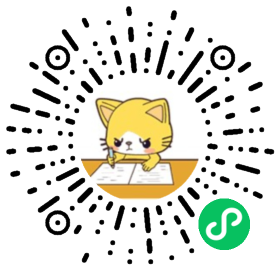相关试题
【单选题】
公司组织的日常工艺纪律检查,分为定期和___两种。
【单选题】
重大、关键工装(如试验台)应严格实行定人、定机、( )的“五定”制度。 ___
A. 定操作规程
B. 定保养细则
C. 定期检查
D. 以上都是
【单选题】
___应进行工艺验证。
A. 重要设计变更
B. 工艺变更
C. 重要设计变更、工艺变更
【判断题】
出席公司正式场合时,要统一着装进入工作现场工作时,要统一着工作服、戴工作帽,穿工作鞋
【判断题】
公司的价值取向是:推崇诚信敬业,褒奖忠于职守,激励钻研创新,倡导团队合作
【判断题】
员工与同事相处,应该做到守时守信,维持个人的良好信誉,是维系同事间良好关系的纽带
【判断题】
根据礼仪要求,员工应于电话铃声响三声以内接听电话,迟接电话须表示歉意
【判断题】
公司的安全目标是:零隐患、零违章、零事故、零伤亡、无新增职业病的“四零一无”
【判断题】
保持健康心态,不发布与工作无关、消极的言论等信息
【判断题】
不接受、不制造、不流出不合格产品(“三不”原则)是公司信条
【判断题】
关于网络昵称,禁止员工直接引用公司全称注册,以免给受众造成该个人账号就是官方账号的错误认识
【判断题】
本质安全从定义上来讲主要是针对物的安全,然而,随着安全科学的发展,本质安全从物这一层级逐步上升为人和物两个方面,它包括人的本质安全和物的本质安全
【判断题】
安全生产一岗双责是指员工在承担自己本职工作职责的同时也必须承担安全职责
【判断题】
公司员工员有权了解其作业场所和工作岗位存在的危险因素、防范措施及事故应急措施,有权对本单位的安全生产工作提出建议
【判断题】
员工每个月可请不超过4 小时的零星事假,请假次数不超过4次
【判断题】
公司员工不得无故迟到、早退、窜岗、溜岗
【判断题】
员工迟到、早退、溜岗、串岗及其他一般违纪行为的公司可给予警告处分
【判断题】
员工工作时间打扑克、下棋、喝酒、睡觉、做与工作无关事情的公司可给予警告处分
【判断题】
因加班安排的换休属于假勤范畴,亦能将加班换休时间换取任何假勤时间的延长
【判断题】
入住前,本人必须按《公寓房间入住申请表》中房间物品清点实物,未及时或未清点物品造成的赔偿由物业负责
【判断题】
配合管理人员执行物业管理制度,与物业人员有意见分歧及时与相关人员反映沟通解决不得无理取闹,如造成不好影响考核200元/次
【判断题】
住宿费,一律凭有效的住宿发票(盖有单位公章或财务章和税务监制章或财政监制章)报销,收据、白条、无发票一律不予报销
【判断题】
未经有关部门许可擅带外人进入生产园区参观的公司可给予警告处分
【判断题】
擅离职守,导致事故,使公司蒙受损失的公司可给予记过处分
【判断题】
无正当理由,不服从工作分配、调动、指挥,影响正常生产进度的公司可给予留用察看处分
【判断题】
严禁垃圾等杂物投入下水道、厕所及窗外。造成下水道堵塞和他人投诉者罚款人民币200元/次
【判断题】
产品的可靠性是指产品满足使用目的的所具备的技术特性
【判断题】
从质量和企业关系方面看,提高质量是企业生存和发展的保证
【判断题】
由于质量特性是人为变换的结果,因此我们所得到的或确定的质量特性实质上只是相对于顾客需要的一种代用特性。这种变换的准确与否直接影响着顾客的需要能否得到满足
【判断题】
提高质量能带来全社会的效益,但是生产企业的成本会增加。因为质量越高,成本也越高
【判断题】
质量检验阶段是一种事后把关型的质量管理,因此不是一种积极的质量管理方式
【判断题】
质量控制致力于提供质量要求会得到满足的信任
【判断题】
质量改进意味着质量水准的飞跃,标志着质量活动是以一种螺旋式上升的方式不断提高
【判断题】
质量改进就是通过采取各种有效措施,提高产品、过程或体系满足质量要求的能力
【判断题】
关键岗位人员是指管人、管财、管物、管项目、管工程、管投资的简称
推荐试题
【单选题】
(B737ng)若APU关车过程中FCU中的电磁活门失效,ECU会使 亮:___
A. 维护灯
B. 故障灯
C. 超转灯
D. 没有FDE
【单选题】
(B737ng)737NG APU的运行时间在哪里显示___
A. 和737-345一样
B. 在APU上看
C. 在CDU
D. B&C对
【单选题】
(B737ng)737NG的APU相对737-345更易于维护主要体现在___
A. 不用到APU上检查滑油量,在驾驶舱即可,并有相应的提示
B. 飞机上有部件可以提供维护信息代码,易于排故
C. CDU可以对整个系统进行实时的监控
D. 以上都对
【单选题】
(B737ng)737NG可以在哪看APU的滑油量___
A. 和737-345一样
B. 在APU的滑油箱
C. 在CDU
D. B&C对
【单选题】
(B737ng)737NG取消了737-345的三速电门,APU控制组件和ETC。其功能由谁提供___
A. SCU
B. SPU
C. ECU
D. DMM
【单选题】
(B737ng)737NG由什么部件控制APU的起动和保护:___
A. SCU
B. SPU
C. ECU
D. DMM
【单选题】
(B737ng)737NG在哪看APU的运行时间___
A. 看不到
B. 在APU上看专用的表
C. 在CDU
D. B&C对
【单选题】
(B737ng)APU 的燃油是用什么加温的___
A. A. 引入环境空气加温
B. B. 用第二级压气机出口的空气
C. C. 用供气管的热空气
D. D. 用滑油
【单选题】
(B737ng)APU的ECU在:___
A. 电子舱里面
B. 前货舱门后面
C. 后货舱门后面
D. 后厨房上面
【单选题】
(B737ng)APU的起动机是:___
A. 起动机-发电机
B. 空气涡轮起动机
C. 空气循环机
D. 直流起动马达
【单选题】
(B737ng)APU的起动是通过:___
A. 空气涡轮起动机
B. 空气循环机
C. 直流起动马达
D. 起动机-发电机
【单选题】
(B737ng)APU的涡轮是:___
A. 单级轴流式
B. 两级轴流式
C. 单级离心式
D. 两级离心式
【单选题】
(B737ng)APU滑油散热器的冷却空气是从哪里获得:___
A. 飞机尾部反吸进来
B. 进气道提供
C. APU舱门处供气
D. 以上都不对
【单选题】
(B737ng)APU滑油箱内的滑油量为4.0夸脱时,驾驶舱CDU上APU滑油量显示为:___
A. FULL
B. LOW
C. ADD
D. D.4.0夸脱
【单选题】
(B737ng)APU起动机和发电机是:___
A. 是分开的
B. 是起动发电机
C. 都不对
D. 都对
【单选题】
(B737ng)APU正常的工作转速是:___
A. 95%
B. 98%
C. 100%
D. 都对
【单选题】
(B737ng)APU正常的工作转速是:___
A. 0.98
B. 0.99
C. 100%
D. 都对
【单选题】
(B737ng)GTCP85-129型APU控制电门放“START”位回复到“ON”位时:___
A. A.APU燃油关断活门和进气问打开
B. B.APU燃油电磁阀打开
C. C.点火激励器开始激励
D. D.起动机开始工作
【单选题】
(B737ng)PTU工作所需液压压力来自___
A. A.A系统
B. B.B系统
C. C.备用系统
D. D.A和B
【单选题】
(B737ng)地面用APU气源起动发动机,接通发动机起动电门后,气源管道压力会:___
A. 保持在20PSI
B. 升高
C. 下降
D. 基本不变
【单选题】
(B737ng)飞机在41000英尺高空时:___
A. APU可供90KVA电源
B. APU可供66KVA电源
C. APU可供气源
D. APU不可供电
【单选题】
(B737ng)关APU时ECU会否起动一个冷却过程:___
A. 不会
B. 会,时间为15S
C. 会,时间为30S
D. 会,时间为60S
【单选题】
(B737ng)下列各种情况,哪一种不会导致APU保护性停车?___
A. A. APU转速超过110%
B. B. APU滑油过热
C. C. APU滑油低油量
D. D. APU滑油低压
【单选题】
(B737ng)下列哪一元件对APU发动机的工作或起动没有控制作用? ___
A. A. ETC
B. B. APU控制组件
C. C. 三速电门
D. D. APU发电机控制组件
【单选题】
(B737ng)下列哪种情况,将引起APU自动停车___
A. A. 滑油箱油量低于是0.5夸脱
B. B. 飞机在空中,把电瓶电门扳至“OFF”位
C. C. 滑油压力瞬时(小于10秒)低于45 PSI
D. D. 滑油温度瞬时超过124 0 C
【单选题】
(B737ng)在大流量气源负载期间为防止高EGT,APU采取的自动保护方法是___
A. A. 通过加速限制活门旁通多一点燃油,来减少供给燃烧室的燃油
B. B. 由电子温度控制组件(ETC)打开喘振活门,来减轻压气机负荷
C. C. 由电子温度控制器(ETC)关停APU
D. D. 由电子温度控制器(ETC)关闭APU引气活门
【单选题】
(B737ng)737NG的APU系统较易于维护主要体现在哪里:___
A. CDU可以对整个系统进行实时的监控
B. 不用到APU上检查滑油量,在驾驶舱即可,并有相应的提示
C. 飞机上有部件可以提供维护信息代码,易于排故
D. 以上都对
【单选题】
(B737ng)737NG新增APU的MAINT灯,以下哪一个不是灯亮的条件:___
A. 起动时起动发电机内部旋转整流器短路
B. APU低滑油量
C. APU低滑油压力
D. 题目有问题,以上都是灯亮的条件
【单选题】
(B737ng)APU 的燃油用什么实现加温___
A. B. 用第二级压气机出口的空气
B. C. 用供气管的热空气
C. D. 用滑油
D. A. 引入环境空气加温
【单选题】
(B737ng)APU 的转速在约10%RPM时,滑油压力4PSI,滑油压力顺序电门闭合,则___
A. A. 滑油低压灯灭
B. B. 点火系统通电,燃油电磁活门打开
C. C. 喘振活门打开
D. D. 起动机停止工作
【单选题】
(B737ng)APU保护性关车不会使下列那个灯亮:___
A. 低压灯
B. 故障灯
C. 超转灯
D. 维护灯
【单选题】
(B737ng)APU的( )活门控制气流以保证( )不喘震。___
A. 防喘,负载压气机
B. 防喘,飞机发动机
C. 引气,负载压气机
D. 引气,APU
【单选题】
(B737ng)APU的起动是通过:___
A. 起动机-发电机
B. 空气涡轮起动机
C. 空气循环机
D. 直流起动马达
【单选题】
(B737ng)APU的什么活门控制气流,以保证________不喘震:___
A. 防喘,负载压气机
B. 防喘,飞机发动机
C. 引气,负载压气机
D. 引气,APU
【单选题】
(B737ng)APU的速度电门(三速电门)有三个速度,其中哪个不是工作速度? ___
A. A.10%
B. B.50%
C. C.95%
D. D.110%
【单选题】
(B737ng)APU发电机地面工作时___
A. A.既可供电又可供气
B. B.可自动向左右两边网络供电
C. C.可同时接通左右两边电门向网络供电
D. D.可先后接通左右两边电门向网络供电
【单选题】
(B737ng)APU防喘活门在什么情况下打开?(APU正常工作) ___
A. A. 飞机在地面引气活门关闭
B. B. 飞机在空中引气活门关闭
C. C. 飞机在地面引气活门打开
D. D. 飞机在空中引气活门打开
【单选题】
(B737ng)APU干重约为多少?___
A. 390KG
B. 200LB
C. 177KG
D. 480KG
【单选题】
(B737ng)APU和电瓶电门都在ON位,APU进气门将会在 打开。___
A. APU开始转动时
B. APU燃油关断活门打开之后
C. 远程灭火手柄作动时
D. 从SPU来了个信号时
【单选题】
(B737ng)APU和电瓶电门都在ON位,APU进气门将会在什么情况作动之后打开:___
A. APU开始转动时
B. APU燃油关断活门打开之后
C. 远程灭火手柄作动时
D. 从SPU来了个信号时



